Today Current Affairs: 30th March 2021 for UPSC IAS exams, State PSC exams, SSC CGL, State SSC, RRB, Railways, Banking Exam & IBPS, etc
Table of Contents
Sabarmati River Front Development Phase 2:
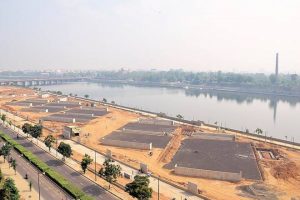
The Ahmedabad Municipal Corporation, in its draft budget for 2021-22, has set aside Rs 1,050 crore for the Sabarmati River Front Development phase 2, work on which is to begin soon.
- Sabarmati Riverfront is a waterfront being developed along the banks of the Sabarmati river in Ahmedabad.
- Proposed in the 1960s, the construction began in 2005.
- The major objectives of the project are environment improvement, social infrastructure, and sustainable development.
- By channeling the river to a constant width of 263 m along the part that passes Ahmedabad city, 204 hectares have been reclaimed along the 11-km stretch of the Sabarmati Riverfront in the first phase of the project, on both the banks.
- The Sabarmati river is one of the major west-flowing rivers in India.
- It originates in the Aravalli Range of the Udaipur District of Rajasthan and meets the Gulf of Khambhat of the Arabian Sea after traveling 371 km in a south-westerly direction across Rajasthan and Gujarat.
Power Of Judicial Review:

Public interest litigation has been filed in the Supreme Court by Wasim Rizvi seeking declaration of 26 verses of the Quran as unconstitutional, non-effective and non- functional on the ground that these promote extremism and terrorism.
- Under Indian law, only a “law” can be challenged as unconstitutional.
- Article 13(3) defines law, which includes any ordinance, order, by-law, rule, regulations, notification, custom or usage having in the territory the force of law.
- “Laws in force” on the commencement of the Constitution include laws enacted by a legislature or other competent authority.
- This definition certainly does not cover any religious scripture including the Quran. Similarly, neither the Vedas nor the Gita, nor the Bible, nor the Guru Granth Sahib can be said to be “law” under Article 13 and thus challenged in a court of law.
- The divine books can be sources of law but not the law in themselves. Thus, Quran in itself is not “law” for the purposes of Article 13.
- It is the paramount source of Islamic law and Muslim jurists extract laws from it through interpretation and also taking into account other sources of law such as Hadees (Prophet’s sayings), Ijma (juristic consensus), Qiyas (analogical deductions), Urf ( customs), Istihsan (juristic preference) and Istisilah (public interest).
- The petition has led to protests among Muslims, and several clerics have issued fatwas against the petitioner.
- In Vishwa Lochan Madan (2014), the Supreme Court has already observed that such fatwas have no validity.
India-Korea Friendship Park:
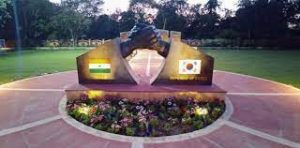
Indian Defence Minister and his South Korean counterpart inaugurated the India-Korea Friendship Park in a ceremony at the Delhi Cantonment.
- Later on both the ministers concluded a bilateral meeting and explored different areas of cooperation.
- Earlier in February 2019, the Prime Minister of India visited South Korea (Republic of Korea).
- The park has been developed in joint consultation with the Ministry of Defence, Government of India, Indian Army, Delhi Cantonment Board, Embassy of Korea and Korean War Veterans Association of India.
- The park’s significance is not only because of it being a symbol of strong India-South Korea friendly relations but also as a monument to India’s contributions as part of 21 countries that participated in the Korean war 1950-53, under the aegis of the United Nations.
Issues Discussed at the Meet:
- Discussed maritime cooperation as part of the Indo-Pacific strategy and also cooperation in the defense industry and future technologies.
- The two countries have a logistics agreement helping the Indian navy while operating in the Indo-Pacific region.
Health Should Be Shifted To The Concurrent List:

Fifteenth Finance Commission Chairman N.K. Singh said that health should be shifted to the Concurrent list under the Constitution. Presently, ‘Health’ is under the State List.
- He also pitched for a Developmental Finance Institution (DFI) dedicated to healthcare investments.
Arguments for Shifting ‘Health’ to the Concurrent List:
- Centre with Greater Flexibility: Bringing health into the Concurrent list would give the Centre greater flexibility to enact regulatory changes and reinforce the obligation of all stakeholders towards providing better healthcare.
- Rationalisation and Streamlining of the Multiple Acts: There is a multiplicity of Acts, rules and regulations, and mushrooming institutions, yet the regulation of the sector is far from adequate.
- With the health in the concurrent list, uniformity of acts can be ensured.
- Centre Expertise to States: The Central government is also technically better equipped to come up with health schemes because it has the assistance of multiple research bodies and departments dedicated to the management of public health.
- States on the other hand do not have the technical expertise to independently design comprehensive public health policies.
New Red Algal Seaweed Species:

Two new red algal seaweed species have been discovered along India’s coastline.
- India has a vast coastline of over 7,500 kms.
- They grow in the intertidal regions of the coast, namely the area that is submerged during the high tide and exposed during low tides.
- The genus Hypnea consists of calcareous, erect, branched red seaweeds.
- There are 61 species of which 10 were reported in India. With two new species, the total number of species now would be 63.
- Hypnea indica was discovered in Kanyakumari in Tamil Nadu, and Somnath Pathan and Sivrajpur in Gujarat.
- Hypnea bullata was discovered from Kanyakumari and Diu island of Daman and Diu.
- Hypnea variants of seaweeds can fetch good monetary value if commercial-scale cultivation is taken up. Hypnea contains Carrageenan, a biomolecule commonly used in the food industry.
Seaweeds:
- They are the primitive, marine non-flowering marine algae without root, stem and leaves, play a major role in marine ecosystems.
- Large seaweeds form dense underwater forests known as kelp forests, which act as underwater nurseries for fish, snails and sea urchins.
- Some species of seaweeds viz. Gelidiella acerosa, Gracilaria edulis, Gracilaria crassa, Gracilaria verrucosa, Sargassum spp. and Turbinaria spp.
Maharaja Chhatrasal Convention Centre:
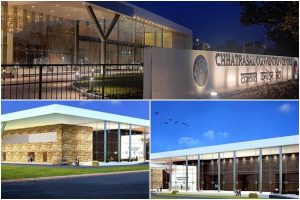
The Maharaja Chhatrasal Convention Centre has been inaugurated at Khajuraho, Madhya Pradesh.
- The Convention Centre, named after the legendary Bundelkhand King Maharaja Chhatrasal, was built under the Swadesh Darshan Scheme of the Ministry of Tourism.
- Born on 4th May 1649, to Champat Rai and Lal Kunwar, into the Bundela Rajput clan.
- Medieval Indian warrior, fought against the Mughal Empire, and established his own kingdom in Bundelkhand.
- Descendant of Rudra Pratap Singh of Orchha.
- He started his struggle in 1671, and first captured Naugaon region of Chhatarpur district.
- He fought for 50 years against Mughals and captured a large part of Bundelkhand with his seat of power at Panna.
- Baji Rao, I helped Chhatrashal against the Mughals. He sent military aid against the Mughal force led by Muhammad Khan Bangash in 1728.
- The Maratha Peshwa Baji Rao I’s second wife Mastani was Chhatrasal’s daughter.
- Before his death, Chhatrasal transferred Mahoba and the surrounding area to Baji Rao I in return for his assistance against the Mughals.
- His court housed several noted poets. His eulogies written by Kavi Bhushan, Lal Kavi, Bakhshi Hansaraj, and other court poets helped him gain lasting fame.
- Swami Prannathji also guided him in political, social, and economic matters.
- Swami Prannathji told Chhatrasal regarding the Diamond mines of Panna and thus helped him in strengthening his financial position.
- The Chhatarpur town and its district in Madhya Pradesh are named after Chhatrasal.
- Maharaja Chhatrasal Museum in Madhya Pradesh and the Chhatrasal Stadium in Delhi is also named after the Maharaja Chhatrasal.
The rules For Appointing Polling Agents Changed:
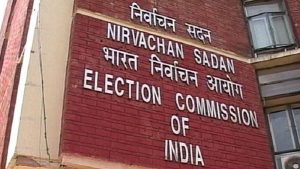
The Election Commission’s recent decision to change the rules for appointing polling agents has sparked off a debate in West Bengal.
- A polling agent is a person appointed as a representative of a political party as it is not possible for a candidate to be physically present at every polling booth on the day of the elections.
- Therefore, the Election Commission allows a candidate to appoint a polling agent who keeps an eye on the voting process.
- As per the Election Commission’s rules, a polling agent should be familiar with the rules and procedures to conduct elections using EVMs and VVPATs, and with the working of these machines.
- Towards this end, a polling agent attends the demonstrations arranged by the Returning Officer, where the functioning and operation of these machines are explained.
- As per the new regulations, a political party can now nominate a polling agent for any booth within the assembly segment he/she is a voter from.
- Earlier, the polling agent had to be a voter of the booth or an adjoining booth that he/she is working at.
- The Trinamool has been opposing the change in rules, calling it “arbitrary, motivated and biased” and has also written to the Election Commission seeking withdrawal of the order.
Uniform Civil Code:

Chief Justice of India (CJI) S A Bobde lauded Goa’s Uniform Civil Code, and encouraged “intellectuals” indulging in “academic talk” to visit the state to learn more about it. Earlier in September 2019, the Supreme Court had described Goa as a “shining example” with a Uniform Civil Code.
- A Uniform Civil Code is one that would provide for one law for the entire country, applicable to all religious communities in their personal matters such as marriage, divorce, inheritance, adoption, etc.
- Article 44 of the Constitution lays down that the state shall endeavor to secure a Uniform Civil Code for the citizens throughout the territory of India.
Directive Principles of State Policy
- Article 44 is one of the Directive Principles of State Policy.
- These, as defined in Article 37, are not justiciable (not enforceable by any court) but the principles laid down therein are fundamental in governance.
- While Article 44 uses the words “the state shall endeavor”, other Articles in the ‘Directive Principles’ chapter use words such as “in particular strive”; “shall, in particular, direct its policy”; “shall be the obligation of the state” etc.
- Indian laws do follow a uniform code in most civil matters — Indian Contract Act, Civil Procedure Code, Sale of Goods Act, Transfer of Property Act, Partnership Act, Evidence Act, etc.
- States, however, have made hundreds of amendments and, therefore, in certain matters, there is diversity even under these secular civil laws. Recently, several states refused to be governed by the uniform Motor Vehicles Act, 2019
9th Ministerial Conference Of Heart Of Asia:

External Affairs Minister Dr S Jaishankar reached Dushanbe on a three-day visit to Tajikistan. He will attend the 9th Ministerial Conference of Heart of Asia – Istanbul Process on Afghanistan.
- The Heart of Asia – Istanbul Process (HoA-IP) is an initiative of Afghanistan and Turkey, which was officially launched at a conference hosted by Turkey in Istanbul on 2 November 2011.
- Since then, Afghanistan supported by fourteen Participating Countries of the Heart of Asia Region and 16 Supporting Countries beyond the region as well as 12 Regional and International Organizations is leading and coordinating this Process.
- It is a platform for promoting regional security, economic and political cooperation centered on Afghanistan through dialogue and a set of Confidence Building Measures (CBMs).
- The Directorate-General for Regional Cooperation of the Ministry of Foreign Affairs of Afghanistan is acting as the de facto Secretariat of the Process.
- The Heart of Asia Region: The geographical area covering the 15 Participating Countries of the HoA-IP is defined as the Heart of Asia Region. It is one of the biggest regions in the world with a collective geographical area of more than 40 million km2 covering around 27% of the land area of the Earth.
- As the lead country for Trade, Commerce, and Investment Confidence Building Measure under Heart of Asia – Istanbul Process, India has made concerted efforts for strengthening regional connectivity for the greater economic integration of Afghanistan with the region.
- A dedicated Air Freight Corridor between cities of India and Afghanistan and operationalization of Chabahar Port in Iran steps in that direction.
- After arriving in Dushanbe today, Dr. Jaishankar visited the Dushanbe-Chortut Highway Project He lauded the Good work being done by Border Roads Organisation BRO under Indian grant assistance. The 8-lane highway will decongest Dushanbe.
14-Digit Identification Number To Every Plot Of Land In The Country:
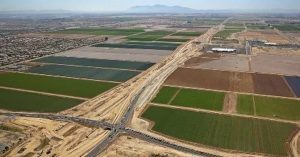
The Centre plans to issue a 14-digit identification number to every plot of land in the country within a year.
- It will subsequently integrate its land records database with revenue court records and bank records, as well as Aadhaar numbers on a voluntary basis, according to a parliamentary standing committee report submitted to the Lok Sabha last week.
- The Unique Land Parcel Identification Number (ULPIN) scheme has been launched in 10 States this year and will be rolled out across the country by March 2022, the Department of Land Resources told the Standing Committee on Rural Development.
- An official, who did not wish to be named, described it as “the Aadhaar for land” — a number that would uniquely identify every surveyed parcel of land and prevent land fraud, especially in rural India, where land records are outdated and disputed.
- The identification will be based on the longitude and latitude of the land parcel and is dependent on detailed surveys and geo-referenced cadastral maps.
- This is the next step in the Digital India Land Records Modernisation Programme (DILRMP), which began in 2008 and has been extended several times as its scope grew.
- The Department has taken new initiatives under the programme like NGDRS [or the National Generic Document Registration System], ULPIN, linking of the court to land records, integration of consent-based Aadhaar number with land records etc. which necessitated its further extension beyond 2020-21 till 2023-24.




